Considering a career change can be both exciting and daunting, and writing a resignation letter often marks the beginning of that journey. Whether you're feeling unfulfilled or eager to pursue a new passion, it's important to express your thoughts clearly and professionally when you resign. A well-crafted resignation letter can not only maintain positive relationships with your current employer but also set the tone for your next adventure. If you're ready to explore how to articulate your intentions, read on for some effective resignation letter templates and tips to guide your transition.

Professional tone and courteous language
Pursuing a career redirection can lead to significant personal and professional growth. In recent months, I have been reassessing my career trajectory, particularly my role at [Company Name], where I have dedicated [number] years. I have developed valuable skills such as project management and team leadership, contributing to [specific project or achievement]. However, a desire for new challenges in [specific field or industry] has become increasingly clear. This decision aligns with my personal aspirations and long-term professional goals. I am committed to ensuring a smooth transition, assisting in any way during my notice period of [notice period duration]. Thank you for the guidance and support throughout my time with [Company Name].
Clear statement of resignation including last working day
Resigning from a position can be a significant step in one's career journey. A clear resignation statement should include the last working day, which facilitates a smooth transition for both the employee and the employer. For instance, in a resignation notice dated October 1, 2023, an employee may declare, "I hereby resign from my position at ABC Corporation, with my last working day being October 15, 2023." Such a declaration allows the organization adequate time to prepare for the employee's departure while ensuring that all tasks and responsibilities can be addressed in an orderly manner. It is essential to express gratitude for the opportunities and experiences acquired during this tenure, assisting in maintaining professional relationships as one embarks on new endeavors or directions in their career.
Expression of gratitude towards current employer
Contemplating a career redirection can lead to thoughtful decisions regarding professional paths. Expressing gratitude towards current employers is essential during this transition. Acknowledge pivotal experiences gained at the workplace, such as teamwork in diverse projects, contributions to company growth, or mentorship relationships established with colleagues. Highlight specific moments, like leading a successful project that increased revenue by 25% or participating in community service initiatives organized by the company. Emphasizing personal and professional development opportunities provided by the employer, such as training workshops or leadership programs, reinforces appreciation. Clearly communicate intentions to maintain positive relationships and seek future networking opportunities with the organization.
Brief explanation of career redirection aspirations
In recent years, many professionals have sought career redirection to align their work with personal passions and emerging industries. Individuals often pursue opportunities in technology, sustainability, or creative fields, aiming to acquire skills that cater to changing market demands. Increased job satisfaction can result from this realignment, as many find fulfillment in pursuing roles that resonate deeply with their values and interests. For instance, transitioning from traditional roles in finance to positions in renewable energy can offer not only financial benefits but also a sense of contributing positively to the environment. Continued education and upskilling, such as certifications in project management or digital marketing, are common strategies during this transition, facilitating the pursuit of new professional horizons.
Offer of assistance during transition period
Resignation from a position can signal a pivot in one's career path. A professional resignation letter should clearly communicate the intent to leave while offering assistance during the transition phase. This document typically includes the employ's title, such as Marketing Manager, identifies the last working day, often giving a two-week notice, and expresses gratitude for the experiences gained. It may also highlight the desire to assist in training a replacement or transferring responsibilities, ensuring a smooth transition for the team. Such gestures promote positive relationships and maintain professionalism when shifting career directions.

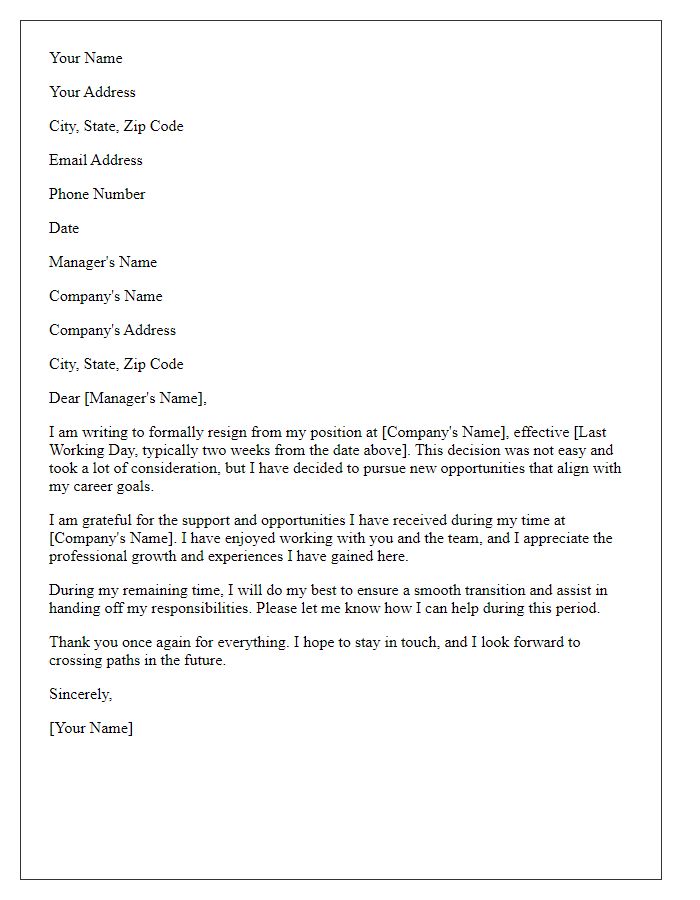
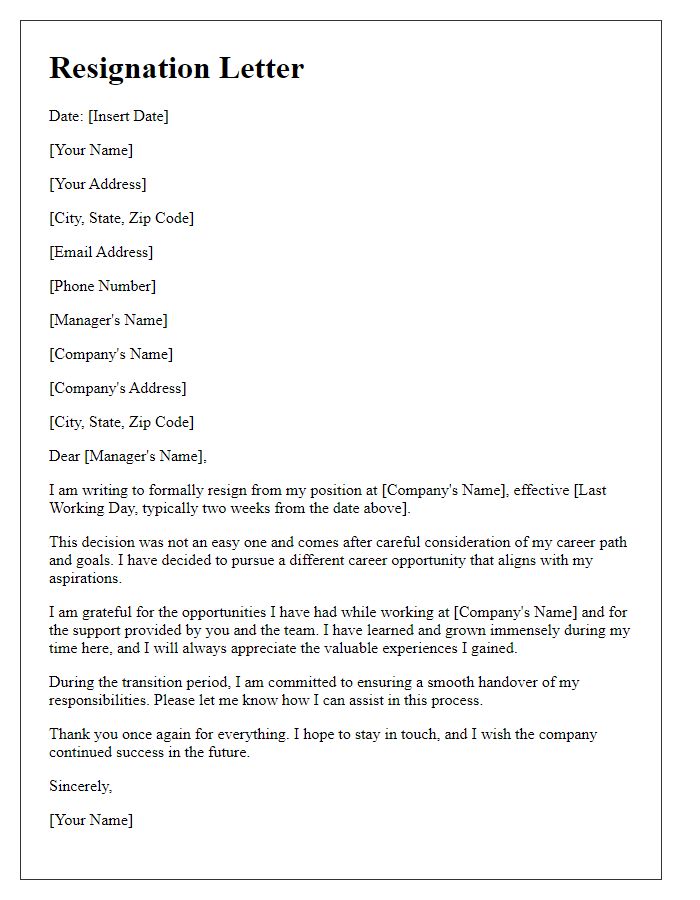
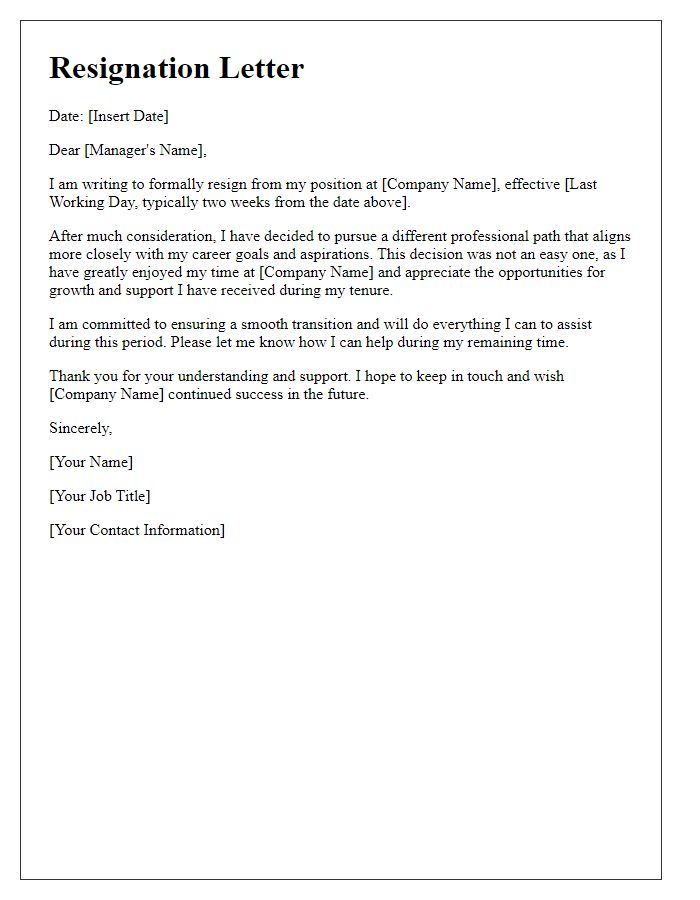
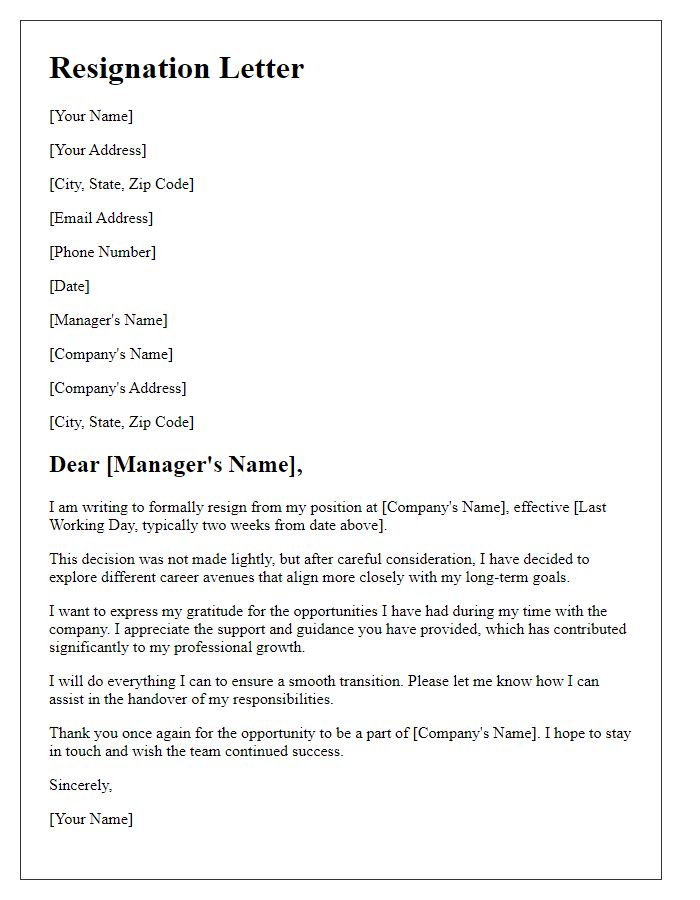
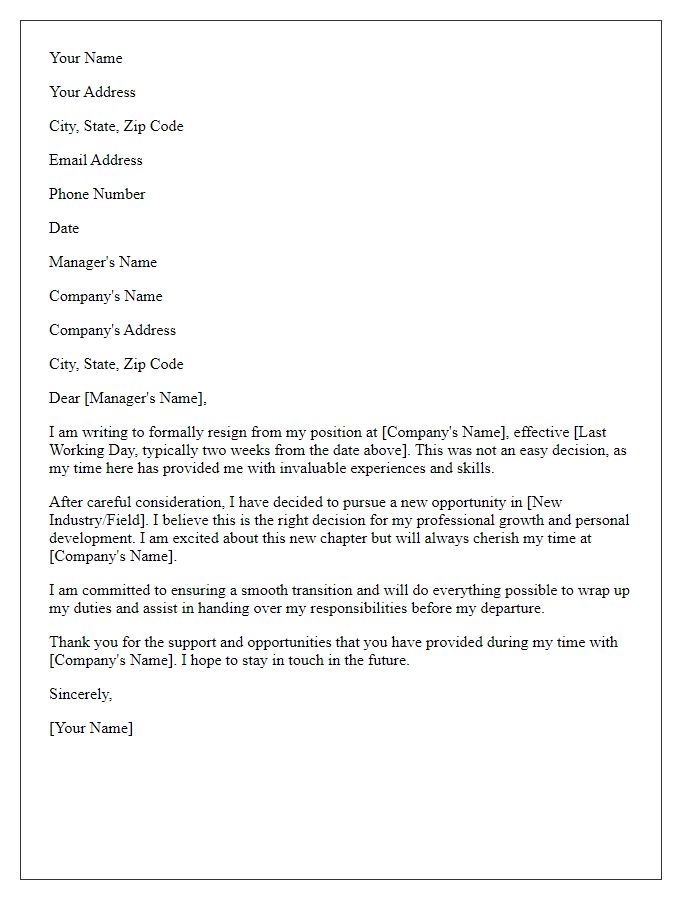
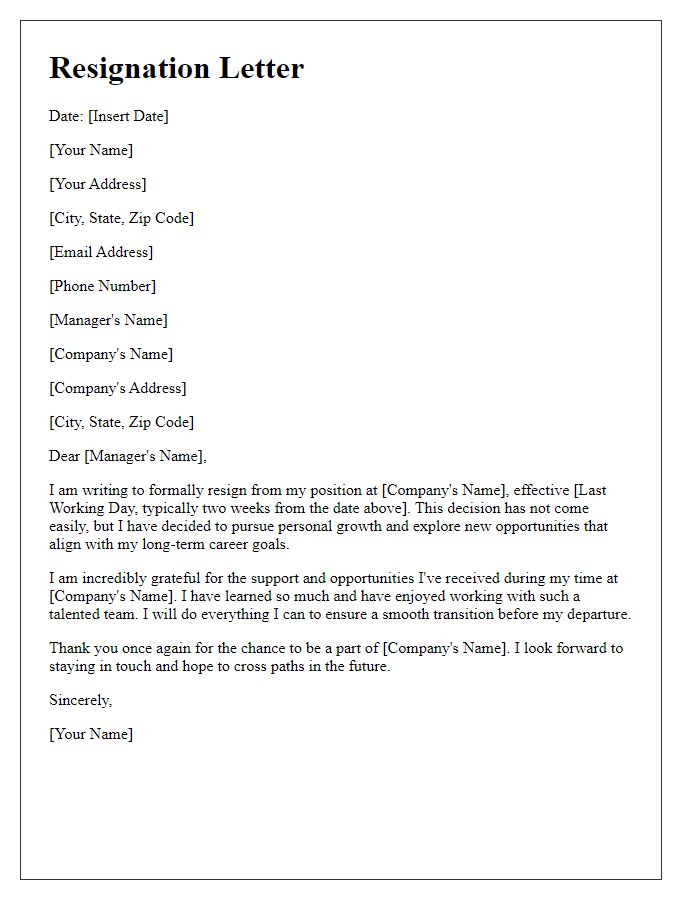
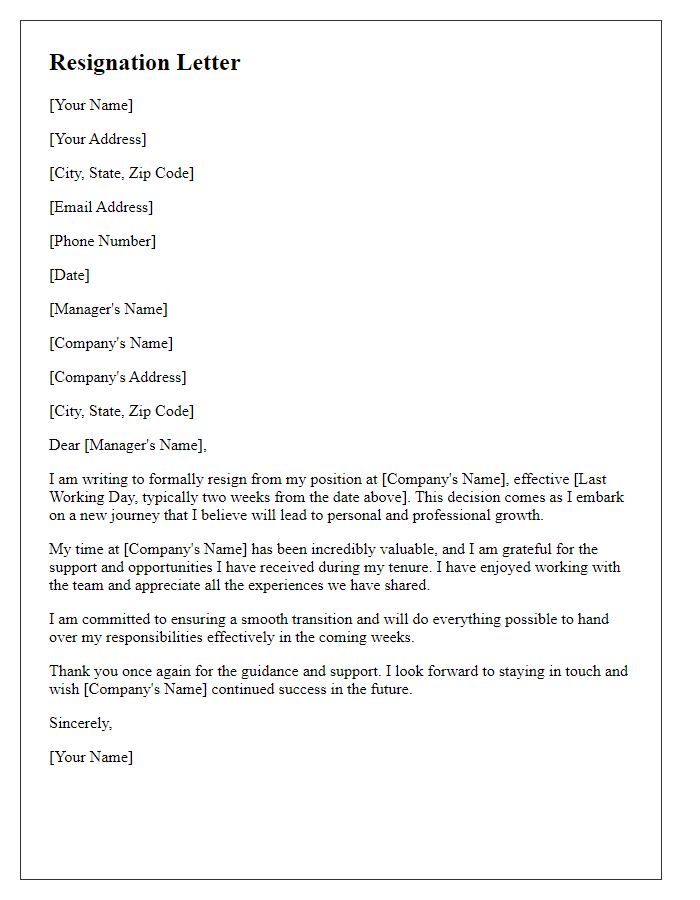
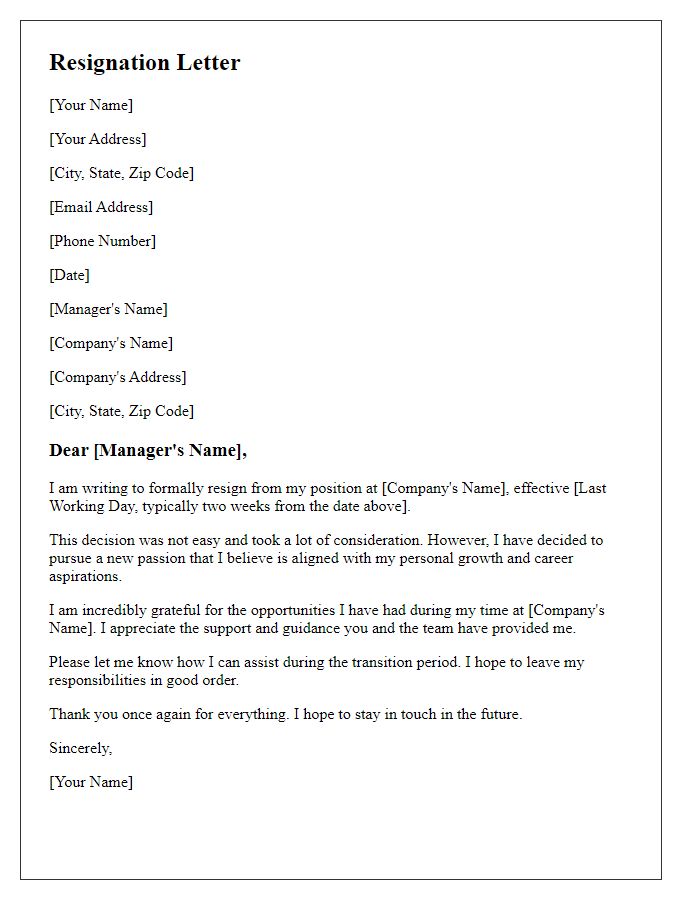
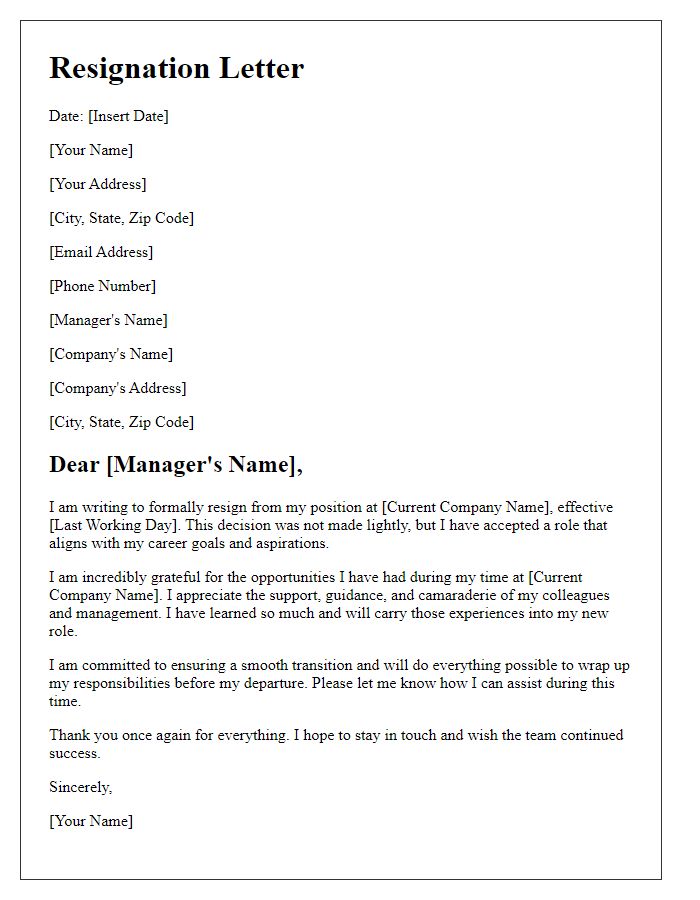
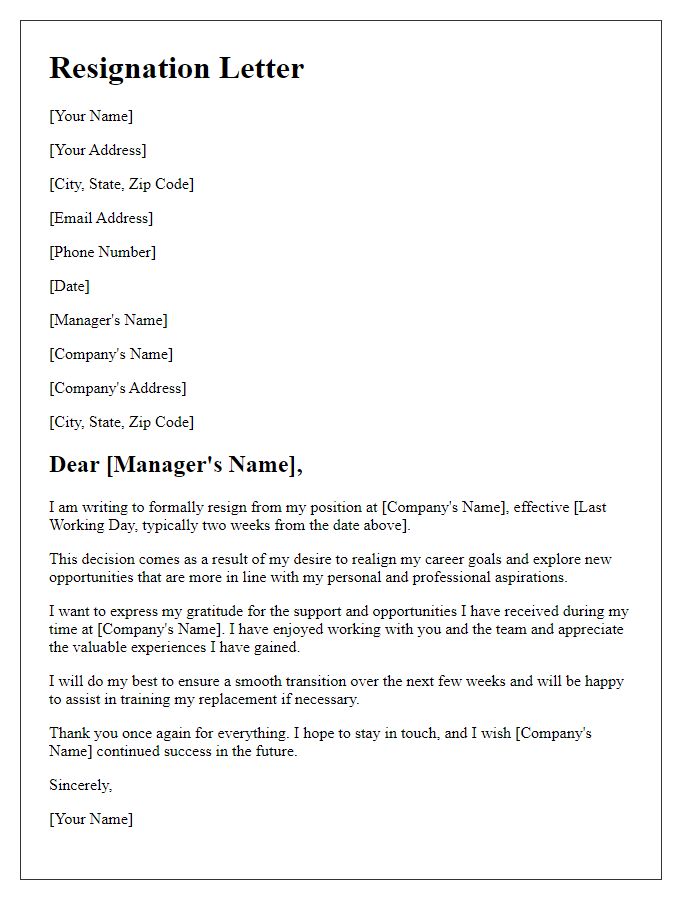


Comments